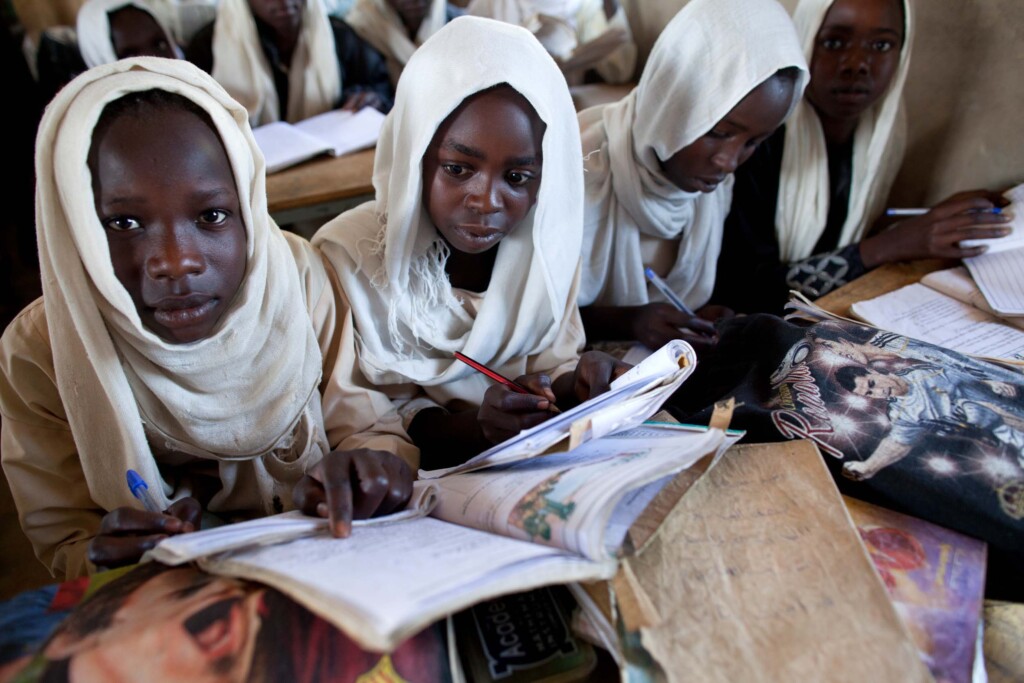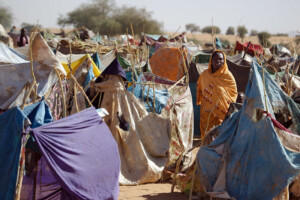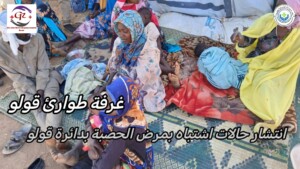Striking Sudan teachers reach agreement with Khartoum govt

School children in Darfur (File photo: Albert González Farran / UNAMID)
KHARTOUM –
The Sudanese Teachers Committee, whose members have been participating in months of strike action, announced today that an agreement has been reached with the authorities in Khartoum. Most of their demands have been met, however, the main one concerning a rise in the minimum wage, will be dealt within due course.
In a press statement, the committee said that in a meeting with representatives of the Sovereignty Council and the Finance Ministry on Wednesday, it was agreed to increase the proportion of government spending on education to 14.8 per cent of the 2023 budget, and to immediately implement Cabinet Resolutions 380 and 363.
The authorities agreed to disburse a cash alternative and a three-month grant for teachers in all of Sudan, in addition to clothing allowance for teachers in Khartoum and Central Darfur. Fixed-value bonuses in the 2023 budget will be reviewed.
A national conference on education will be held under the auspices of the Sovereignty Council, financed by the Ministry of Finance, and supervised by the Ministry of Education and the Sudanese Teachers Committee.
The raise of the minimum wage was discussed as well. “The Ministry of Finance’s response was that the minimum is a concern for all employees in Sudan. The ministry is working on plans to reform the salary structure.”
The statement called on all local strike committees to give their opinions on the agreement “in order to reach a decision regarding the current strike”.
The meeting was attended by the head of the Sudanese branch of the El Gadiriya Sufi sect, Sheikh El Riyeh Azrag Teiba, who, together with a number of politicians, met with the Teachers Committee in Khartoum on Sunday “with the aim of identifying problems with education and teachers’ rights”.
In March last year, the Sudanese Teachers Committee announced a partial strike in all states of Sudan as the Finance Ministry did not meet their demand for a raise of the minimum wage and a reform of the salary structure, now divided over two lines, and a better work environment.
They decided to intensify their protest actions, and laid down their tools again on various days in November and December. When talks with the Finance Minister “reached a dead end“ in mid-December, the Teachers Committee called on all teachers to close the primary, middle, and secondary government schools in the country from January 8 until January 28.
More than 16,000 government schools in Sudan are participating in the strike.











 and then
and then